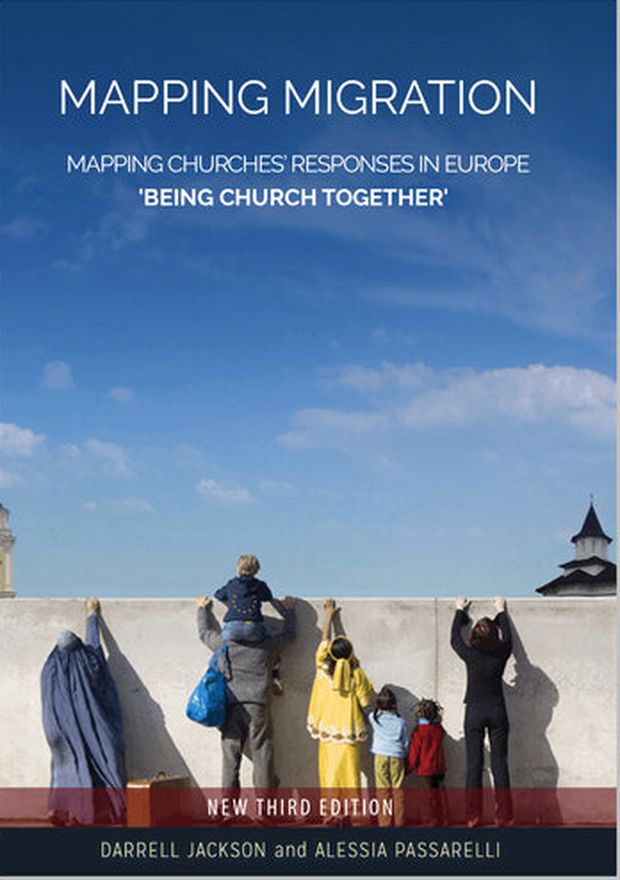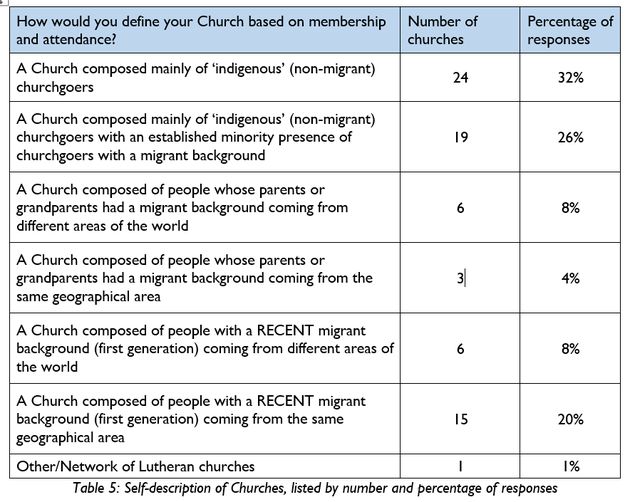The vitality of migrant faith does not represent the de-Christianisation of Europe but the de-Europeanisation of European Christianity.
![Photo: [link]Julie Ricard[/link], Unsplash, CC0](https://cms.evangelicalfocus.com/upload/imagenes/6166c4e0a88c9_juliericard940.jpg) Photo: [link]Julie Ricard[/link], Unsplash, CC0
Photo: [link]Julie Ricard[/link], Unsplash, CC0
In April 2010, the Polish president, Lech Kaczynski and his wife were killed in a Russian plane crash, Eyjafjallajökull erupted and crippled airline schedules across the continent, Matt Smith made his first appearance as Dr Who for the BBC, and… the first edition of VISTA was released on an unsuspecting public!
As its editors, we were all connected closely with the former Redcliffe College and were all equally committed to a better understanding of Christianity and mission.
Henrietta Cozens, won herself a teapot in the ‘suggest a name for our new e-bulletin’ competition. Following our launch edition, we have not looked back.
Thirty-nine editions, and eleven years later, VISTA continues to publish information-led analysis and commentary of intercultural Christianity and mission in Europe.
I have personally contributed articles dealing with nationalism, migration, secularisation, Islam, spirituality and young people, European politics, church planting, religious freedom, demographics, biblical social vision, historical perspectives on migration, innovation and urban mission, Mike Frost’s ‘excarnation’, the State of Europe, spirituality in Europe, the 25th anniversary of the reunification of Germany, Bible translation, human trafficking, political extremism, refugees, creation-care, Brexit, multicultural congregations, Muslims in Europe, Christianity in ‘western’ Europe, Charles Taylor, reimagining Europe, COVID, migrant religiosity, and a self-indulgent piece about my contributions over the last eleven years.
The Nova Research Centre and Vista represented an effective research-led contribution to the robust, evidence-based approach to the academic study of mission in Europe, culminating in the design and introduction of an MA in Intercultural Christianity and Mission in Europe, validated by the University of Gloucestershire.
Vista editorial team played key roles in teaching and mentoring students in the various cohorts who gained their MA through this programme.
After almost fifteen years of research European intercultural Christianity and mission in Europe, I remain as committed as ever to a better understanding of the phenomenon of migration in Europe.
This has remained a focus for my research since 2003 and most recently has seen the publication of a third edition of Mapping Migration, Mapping Churches Responses in Europe, co-authored with Alessia Passarelli, and Italian Baptist and a co-researcher of migration in Europe since 2006.

Our latest collaboration was published late in 2020 and focuses on the experience of ‘being church together’: migrant and non-migrant.
I have consistently argued, and our latest edition only reinforces this view, that despite the naysayers, the vitality of migrant faith does not represent the de-Christianisation of Europe but the de-Europeanisation of European Christianity.
This is a vital observation, for it speaks to the truth that European Christianity is multiethnic, multilingual, and multicultural (or perhaps better, diverse in all three areas).
What this edition of Mapping Migration reveals is fascinating and important for an honest and accurate account of the contemporary European churches. A questionnaire was deployed over a 12-month period and results had been submitted before Europe experienced the closures and lockdowns of COVID.
Whereas our research for the second edition, in 2016, had pre-dated the Syrian refugee crisis, we were determined to try to capture something of the impact of COVID on the experience of migrant for this third edition.
Several online conferences allowed a less systematic gathering of narratives and experiences and these shape commentary on our statistical data at key points.
Our 2019-20 research refined our gathering of data relating to the self-description of migrant Christians and migrant churches, their membership, status, and roles within the churches.
Our data was supplied by over 74 denominations in Europe, a significant increase in the number of churches willing to respond over the 2016 edition.
With this edition we also continue to develop our use of the terms integration and intercultural as the most appropriate to describe our understanding of the way that migrants and non-migrants can more effectively be the church together.

Readers of Vista will be interested to know that of the 74 denominations, 11 were Pentecostal and 7 were evangelical denominations. The significance of this is reflected in my analysis of the European Values Survey.
This shows that where migrant religious practice exceeds that of the non-migrant population in Europe, it is Muslims and Evangelicals who are each more active and who make up a greater percentage of migrants than they do among the non-migrant population.
By implication, Evangelical churches in Europe are much more likely to be impacted by Christian migrants than are the mainline protestants of Europe.
Of the 74 denominations or networks surveyed, we were especially interested in how these understood themselves. The following self-descriptions were developed, and respondents were invited to identify with the description that best suited their own self-understanding.
Of these denominations, one in five reported that their migrant membership was over twenty percent, with just under ten percent having a migrant membership of over 60%.
However, there seems to be something of a gap between migrant membership and the leadership offered by migrants in those churches. Only eleven percent of churches have migrants filling more than twenty percent of the leadership positions within the denomination.
As indicated earlier, COVID-related questions were explored through several online events and these suggested that COVID-related restrictions had significant impact upon the informal and highly relational patterns of diaspora churches.
Diaspora church leaders reported feelings of isolation, lack of support across already stretched and vulnerable networks, and a struggle with the theological questions of God’s healing during a pandemic.
In contrast, several migrant church leaders praised the value of strong links with historic European churches, from whom they had been able to request and draw resources.
Several welcomed the creativity that the pandemic had stimulated, and changes were proposed and embraced that might otherwise have been resisted or even thwarted during normal circumstances.
Of course, there is much more that could be said, and elsewhere in this edition you should find a link to a pdf version of our work, or you may purchase a copy from Amazon or other online platforms. It’s even possible that from time to time you might see future versions of our migration research reported here in Vista.
But for now, dear readers of Vista, I bid you adieu, as I write my final piece as an editor of what has become an enduring and reliable organ of accurate information and welcome analysis for the evangelical mission community in Europe and beyond.
It has been a special joy to see my former co-editors joined by Dr Harvey Kwiyani and I wish them, and he, God’s blessing as they continue with their labour of love and service.
Darrell Jackson, Director of Research and Associate Professor, Whitley College, University of Divinity, Melbourne.
This article first appeared in the October 2021 edition of Vista Journal.

Las opiniones vertidas por nuestros colaboradores se realizan a nivel personal, pudiendo coincidir o no con la postura de la dirección de Protestante Digital.
Si quieres comentar o